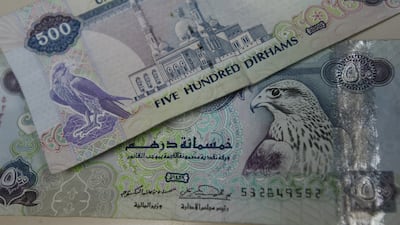With job opportunities, a multicultural environment, a growing economy and a vibrant lifestyle, it’s no surprise that people from all around the world choose the UAE as their second home.
Multiple studies have highlighted the Emirates as an attractive destination for expats.
LinkedIn named the UAE as the world’s top destination for expats for the second consecutive year in 2015. The Mercer 2015 Quality of Living Survey rated Dubai as the best city for expats in the MENA region. And, based on HSBC’s Expat Explorer 2015 survey, over half (53 per cent) regard the UAE as a good place to advance their careers.
Despite this, many fail to reach their financial goals during their tenure here.
According to the UAE Central Bank, the total domestic lending to UAE residents reached over Dh332 billion in December 2015.
So, why the struggle to save? Reasons can be attributed to a combination of high living costs, consumerism, social obligations in the new environment or a general lack of understanding on how to manage income.
Here, the price comparison website Souqalmal.com offers three tips to help you turn your finances around:
Step one: Budget, budget, budget
It’s very easy to lose sight of your goals, and succumb to the urge to spend. But, if you want to save, you have to control spending urges and budget. Start by saving a small, manageable amount each month to develop the discipline of regular saving. Set regular, achievable goals – a monthly amount that takes into account all your fixed expenses such as rent, utility bills, groceries etc. The next action is to create a budget and keep a track of all your expenses. While there may be distractions along the way, staying committed to your plan is the most important part. If you struggle, remind yourself of the bigger long-term goals you want to achieve. Even small things such as missing out on a concert or expensive dinner can make a difference.
Step two: Pay off your debt
If you have debt – whether a mortgage, car or personal loan or credit cards – work on getting rid of it faster. Having a reckless attitude towards debt can overwhelm you with more debt.
Your loans may vary in terms of interest rate, outstanding balance, tenure and terms. Borrowers often end up defaulting on loan repayments because of not knowing which debt to settle first. Choose the right repayment strategy that can help you become debt-free quicker.
Step three: Save more, faster
Once you have set some money aside, what do you do with it next? There are a range of products to stash away your extra cash, be it for the short or long term. You can open a savings account and earn interest/profit while still having the flexibility to access it at any time. While rates on savings accounts don’t generally give you huge returns, you still have instant access to funds in case of an emergency.
If you aren’t satisfied with the returns on savings accounts, opt for a fixed deposit, for a low-risk, short-term place to store your savings. Most UAE banks offer short-term and long-term fixed deposit products with flexible tenures starting from a week and going up to five years. What you earn will depend on the tenure and the amount you put into the fixed deposit. Keep in mind, your money is usually locked in for the period of the tenure and most banks will penalise you for early withdrawal.
pf@thenational.ae
Follow us on Twitter @TheNationalPF

